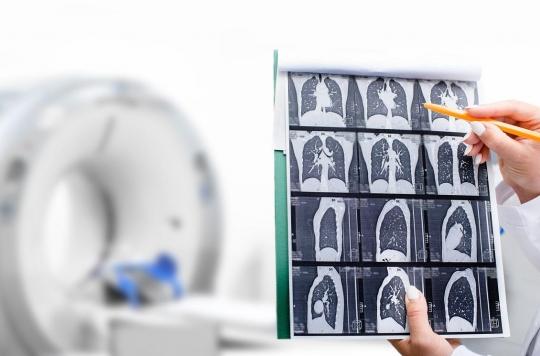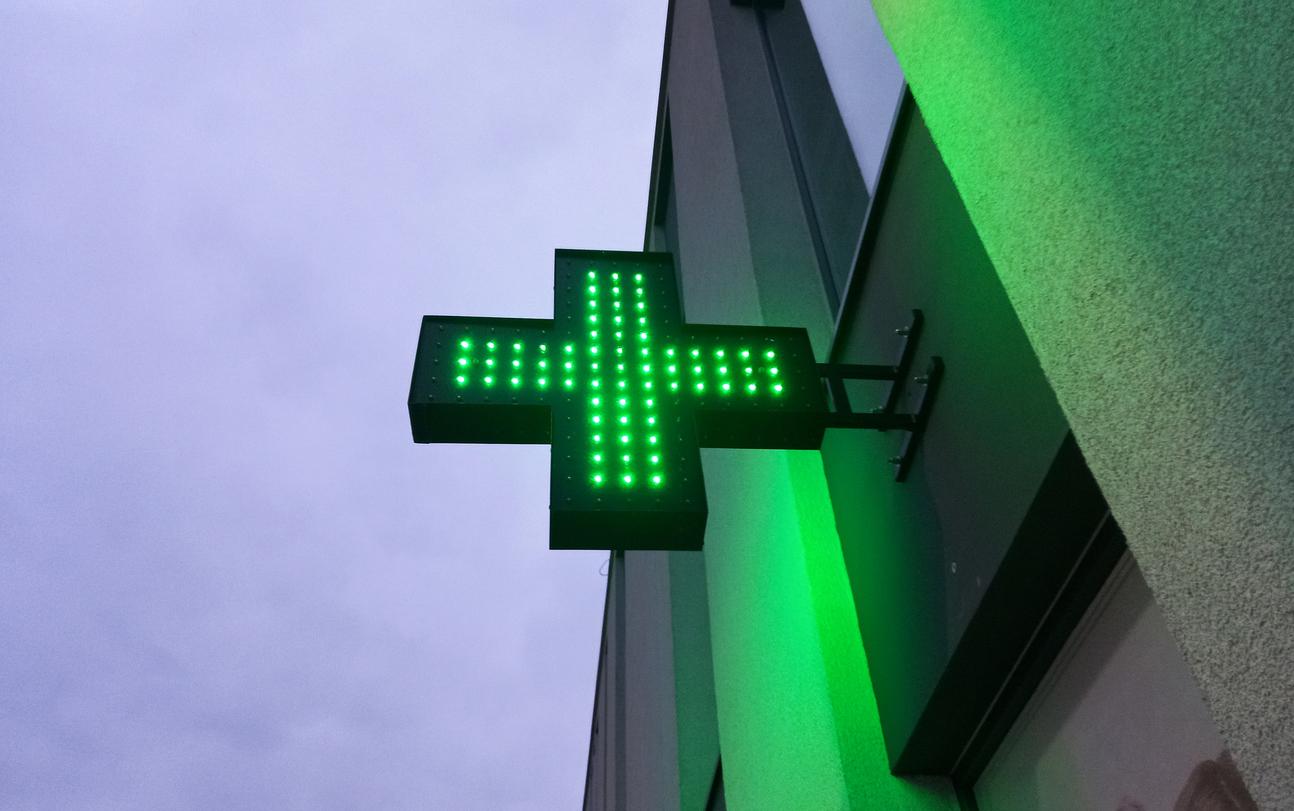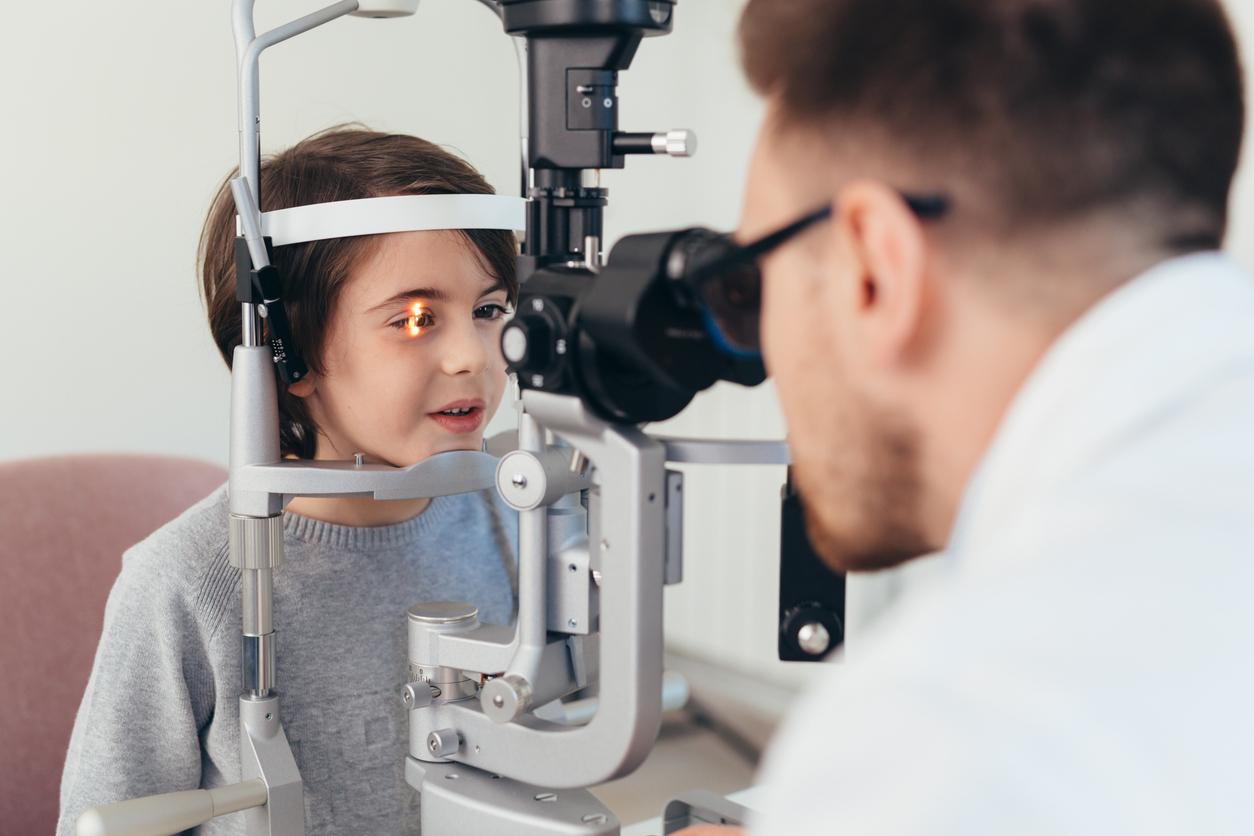While in France, health professionals are advocating for expanded screening for lung cancer, a new study conducted in the United Kingdom among high-risk groups shows the value of early detection to improve care. and reduce mortality.

- A first trial conducted in the United Kingdom among people at risk of developing lung cancer highlights the positive effects of early detection on the management of the disease and mortality.
- In France, no systematic screening for lung cancer is organized for the time being, the High Authority for Health arguing in particular that imaging generates too many false positives.
With an estimated 33,117 deaths in 2018 in France, lung cancer remains today the leading cause of cancer death in the country. In 2018, 31,231 men and 15,132 women were diagnosed with lung cancer, after being individually screened. However, to better manage this disease and especially to limit its mortality, it is urgent to systematize screening by computed tomography (LDCT), in particular among people at high risk.
This is shown by the results of the UK Lung Screening Trial (UKLS), the first CT scan lung cancer screening trial in the UK. Presented at the International Association for the Study of Lung Cancer 2021 World Conference and published in the Lancet Regional Health Europethey bring new proof of the interest of providing more efforts in screening for lung cancer.
Get tested to reduce mortality
The trial was based on the assessment of people aged 50 to 75 and likely to develop lung cancer over five years using the LLP risk score. From October 2011 to February 2013, researchers randomized 4,055 high-risk participants between a single invitation for LDCT screening and no screening (usual care). They then collected data on lung cancer cases and deaths through February 29, 2020 through a link to national registries, an average of seven years.
The results are edifying. In the first group of 1,987 participants who received screening, 86 lung cancers were diagnosed. In the second unscreened group of 1,981 patients, 75 cancers were diagnosed. 30 lung cancer deaths were reported in the screening group, and 46 in the control group. The benefit in terms of lung cancer mortality was most strikingly observed in years 3 to 6 after randomisation. Overall, LDCT screening is associated with a 16% reduction in lung cancer.
For Professor John Field, of the University of Liverpool, these results “provide the impetus to establish a long-term lung cancer or lung health screening program incorporating LDCT screening in the UK and to encourage European countries to initiate their own programmes. The early detection of lung cancer and surgery save lives”.
“These findings add to international evidence that low-dose CT screening reduces the risk of death from lung cancer, abounds Professor Stephen Duffy, of Queen Mary University and principal statistician of the trial. They also demonstrate that this screening can work in the UK. Low-dose CT can be added to the arsenal of potential tools in the fight against lung cancer.”
And in France ?
Although screening is a major issue for lung cancer, often detected at an advanced stage, France does not yet practice systematic organized screening. In 2016, the High Authority for Health (HAS) concluded that “the conditions are not currently met for this screening to be possible and useful”.
To justify its decision, the HAS argued in particular that lung cancer is “difficult to detect at an early stage because of its rapid evolution”. “It is not clear that there is a long enough period – between the moment an abnormality is detectable on imaging and the appearance of the first symptoms – to carry out a screening”. She also explained that “the chest scanner generates too many false positives (up to 90% of anomalies found on the scanner turn out to be non-cancerous after examination) and remains irradiating even at low doses”.
Things could change in the coming years, explained to Why Doctor Professor Christos Chouaid, pulmonologist and lung cancer specialist at the Créteil intermunicipal hospital center, who pleads for an extension of organized screening by low-speed scanner to over 50s. . Emmanuel Macron’s speech last February to present his ten-year cancer strategy put the fight against lung cancer and its screening at the center of the 4th Cancer Plan. “I think it’s time to set up experiments, which can vary according to contexts, regions and situations”explains Professor Chouaid, who wishes “care at the same time as lung cancer screening based on tobacco risk”. “That is to say, to be able, during these lung cancer screenings, to offer comprehensive patient care to offer active smokers smoking cessation, which remains the public health action most effective.”

.
















